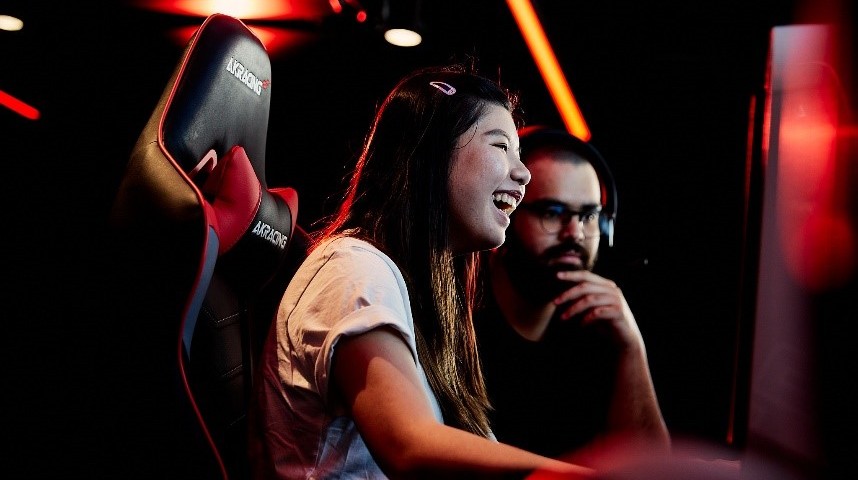
We’ve been hearing esports is the next big thing for a while; but it’s here now, and it’s here to stay.
The world of esports has taken off, and cultivated a whole new era of pro-gamers. One of these is Murdoch student, Jack Deathridge.
Not only has Jack represented Murdoch in the League of Legends and Valorant, but while playing Valorant under the Murdoch Esports banner, was noticed by an old friend on the pro scene.
It’s no surprise that Jack was quickly snapped up for a position as their in-game leader; calling the shots, and leading their team to compete in national tournaments.
Outside of the esports arena, Jack is currently studying a Bachelor of Science in Psychology.
Combining an impressive background in the gaming world with a passion for the inner workings of the human mind, Jack is developing mindsets and healthy habits of other gamers so they can reach their full potential.
Progressing in the gaming world while making strides in his psychology career, Jack offered five tips to up-and-coming gamers looking to break onto the scene.
Play to your strengths
Whether you become a specialist or a generalist, Jack encourages you to recognise your path and work hard towards it.
“Not everyone is built to be an in-game leader; not everyone is built to be a mechanical star; and not everyone is built to play supportive roles,” said Jack.
“Identifying where your strengths are is important to succeeding as a professional player. From there, you can decide to either improve your strengths to become practically perfect in one aspect, or you can try and lessen your weaknesses to become an all-rounder.”
Working on what will make you stand out will get you one step closer to being picked up by a team, which Jack says can be a competitive game itself.
“I was never insanely mechanically skilled, but I could read the game better than most. This meant I added value to my team by leading them through the game with my communication skills and game knowledge.”
Through drawing on his strengths, Jack was able to hone an important skill which is something echoed through his chosen career pathway in psychology.
Commit to the gaming grind
“Work ethic is important, but not essential,” said Jack.
Being an esports player doesn’t mean you intrinsically need to possess a strong work ethic. However, to take your game from amateur to pro, you’ve got to be willing to put in the long hours and hard work to get where you want to be.
“Esport teams expect a lot of hours to be devoted into the game; and as a professional gamer you should expect to play the same game, day in day out.
“In games like League of Legends you are expected to practice with the team for six hours a day and then on top of that, play by yourself.”
Zeroing in on your skills and lessening your game weaknesses takes a lot of time and patience, meaning drive and a strong work ethic are more important than ever.
Evidently, Jack is no stranger to the hard work in the esports world, having kickstarted his gaming career under the Murdoch Esports banner and moving semi-pro within the year.
Embracing the multiplayer esports attitude
As Jack has made clear, you can’t go it alone to make it professionally in gaming. Progressing in this industry means committing to a team, and doing your best to help that team thrive.
“Play for your team, not for yourself,” Jack said.
“Playing to make yourself look spectacular can work when looking to get picked up in a team. However, more times than not, teamwork makes the dream work.”
Teamwork doesn’t always come easy. Jack explained that playing in an esports team often means you have to exercise and develop your interpersonal skills.
Whether this be active listening, problem solving, patience or conflict resolution; these are all important skills when working alongside your team.
“Your teammates are going to disagree with you from time to time, so you cannot take things about the game personally.”
Communication truly is key
The importance of communication cannot be overstated in the esports arena.
Complete visibility and transparency while playing in any environment is essential to the success of your team; and this comes from proper communication.
“Communicate. Talking too much can be fixed but not talking at all cannot be fixed.
“It’s important that you talk to your teammates about everything you’re seeing in the game, as you can make better decisions that way.”
Love what you do
“Most important of all, players who genuinely love the game are always going to excel.
“You cannot put that amount of time into something without enjoying it. If you start not having fun, do not try and pursue it as a career.”
While Jack has had his fair share of career highlights in gaming to date, the most enjoyable aspect of the game has got to be the genuine enjoyment for the game and the people he played alongside.
“Making the top 32 in Valorant First Strike was an incredible feeling, but my highlight is probably having fun with my friends and teammates.
“Recently it would be casting the TFT Regionals as it was an amazing experience commentating alongside some really insightful people.”
The world of esports is one that calls on passion, work ethic, and a commitment to continually work on yourself. Jack will continue to excitably explore this arena through his studies in psychology.
Interested in exploring a career in gaming? Discover the possibilities with a Bachelor of Creative Media.